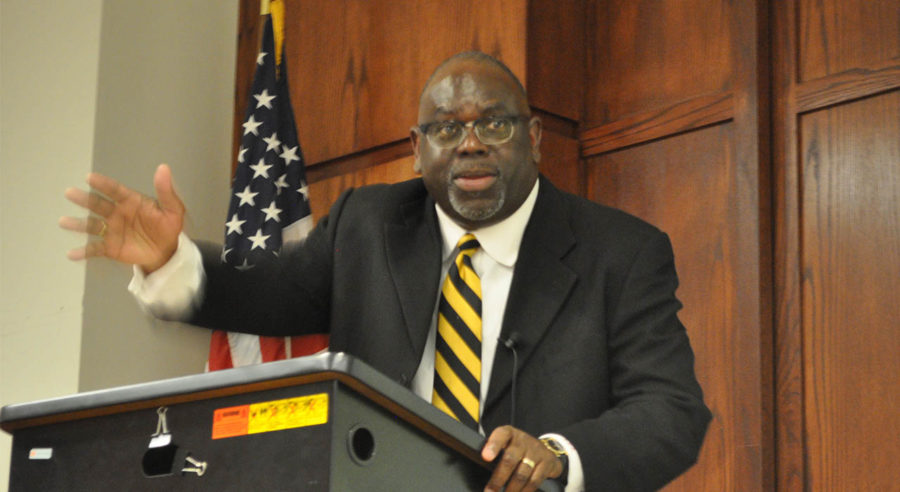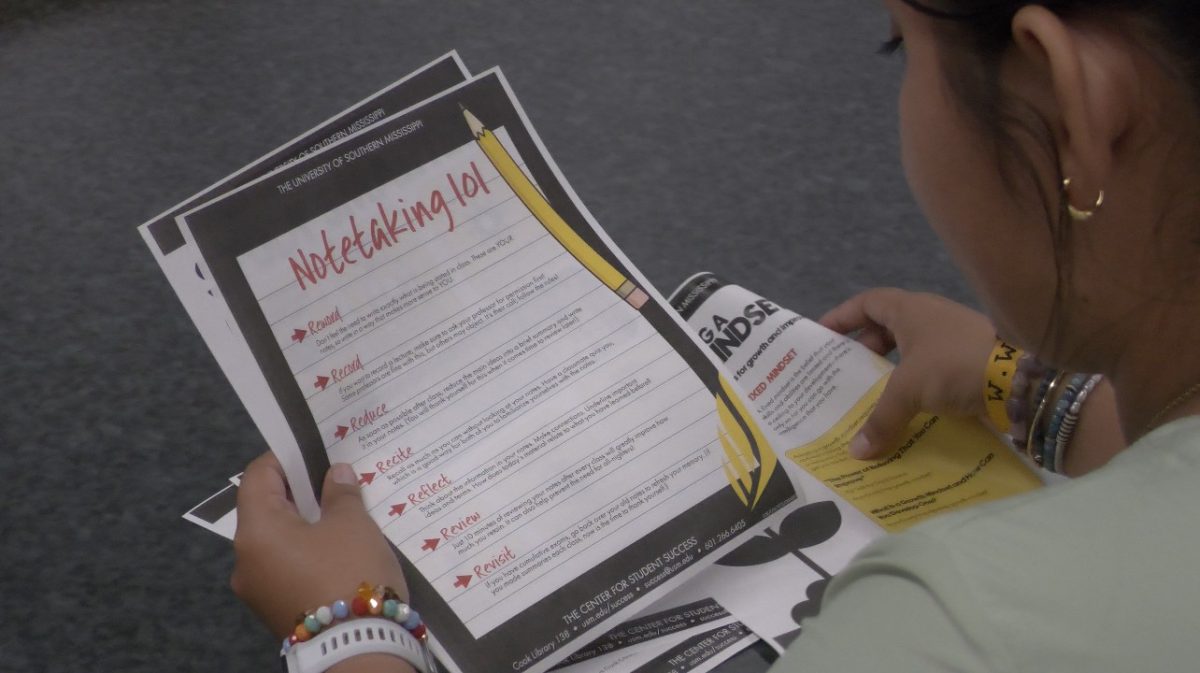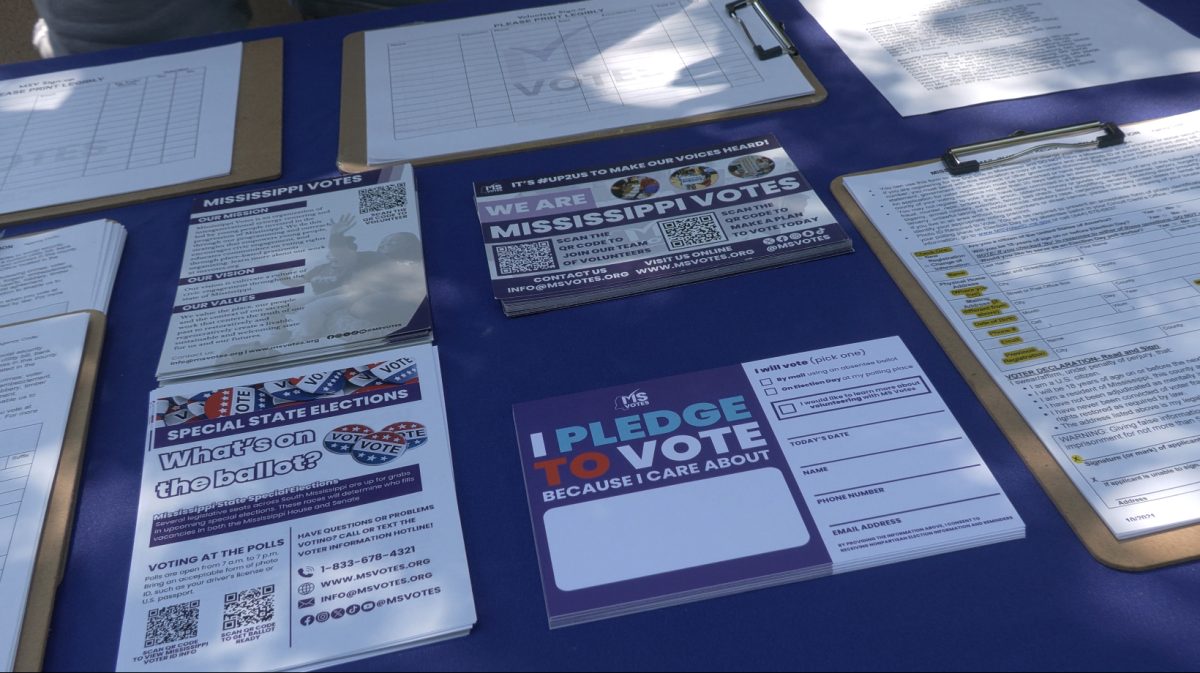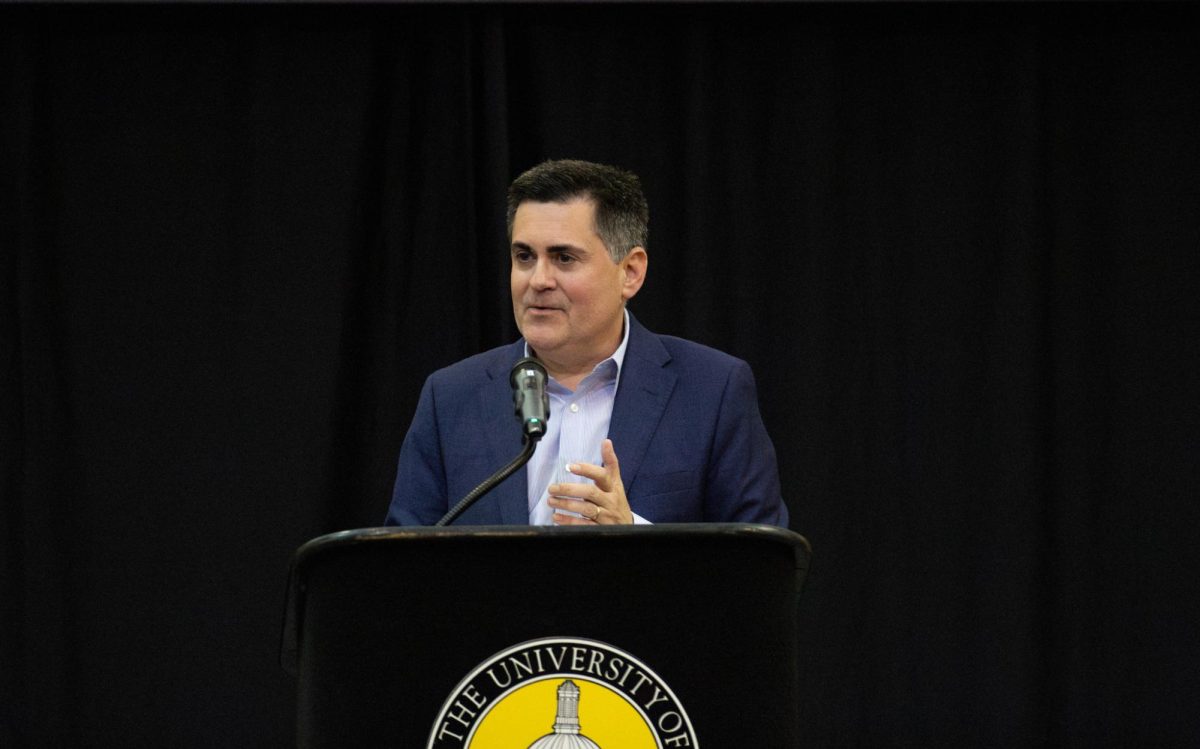Students, faculty and community members filled Gonzales Auditorium at The University of Southern Mississippi to listen to Justice Carlton Reeves speak on Nov. 11. Reeves was a guest of the Department of Philosophy and Religion’s “Philosophical Fridays” lecture series.
Reeves, who was raised in Yazoo City, spoke on the topic of “Racial Justice and the Courts” to a diverse audience. He was the first person in his family to attend a four-year university and graduated magna cum laude at Jackson State University.
Reeves received juris doctorate from University of Virginia Law School in 1989 as a Ritter Scholar. In 2010, Reeves was the first African- American judge appointed to serve on the Supreme Court of Mississippi.
Reeves said USM was his first choice in speaking at universities. He also explained the economic and social issues that arise from the amount of incarcerated individuals in the United States.
The lecture consisted of a historical timeline of the relationship between race and justice in Mississippi. Some of the cases discussed involved that of James Craig Anderson, who was beaten and killed by three white teenagers in Rankin County, and another anonymous case of racial profiling by a police officer. He related these cases to how the justice system treats minorities with a prior opinion based in stereotypes.
“It’s important that the justice system recognizes that it is okay for us to all be different,” Reeves said. “Our differences and biases give us the ability to see a situation from many different perspectives. It’s always a good thing to have a diverse jury. Understand that your difference from someone else is a good thing.”
Reeves showed a photo of 27 black males, who had recently been released from federal prison after being proven innocent. According to Reeves, these men collectively served more than 500 years in prison for crimes that they did not commit.
Many students responded to Reeves’ discussion with questions about topics such as the war on drugs and community review boards to prevent racial profiling. One student asked if Justice Reeves felt that the War on Drugs is the cause of overwhelming incarceration of African-Americans and other minorities. Reeves said he thinks that the war on drugs has definitely contributed to the issue.
Many students who attended the event for extra credit were pleasantly surprised by the amount of information they gained from the captivating speaker. Some were shocked at the nature of the cases Reeves discussed.
“I think that non-minorities can be very blindsided by information like this,” said Oya Sanding, a sophomore criminal justice major. “I think it’s so important to understand your history. Although not everyone is black, I think that everyone has a part in shaping black history.”
































